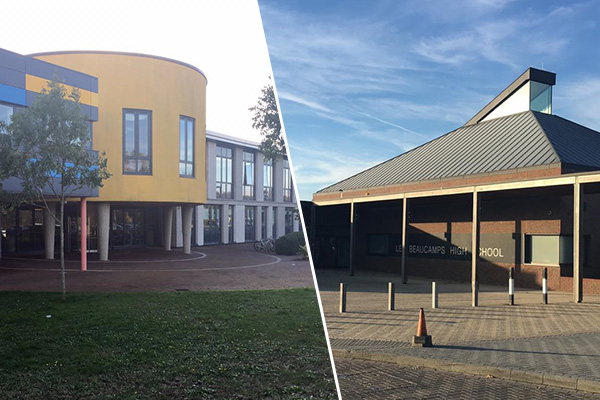

With the move to a one school/two site model getting ever closer, the States have outlined exactly what they're going to do to ensure standards don't slip at secondary level - particularly for the most high achieving pupils in the island.
The Committee for Education, Sport & Culture says it is introducing new policies; "to help stretch high-attaining students and to support lower-attaining students."
The Committee says it wants those policies in place immediately so students are supported throughout the transition period, which starts later this year when the first 'all ability' cohort of students starts at the island's four States run mainstream secondary schools.
"In recognition of the fact that Guernsey is to have its first all-ability cohort in secondary schools from September 2019, the Committee has introduced a policy directly relating to the highest-attaining students. The new policy is intended to ensure that such students are challenged and supported to meet the highest levels of achievement throughout their education. Staff focus groups across the four mainstream secondary schools have provided input into the policy, and Head Teachers have been consulted," ESC said.

Pictured: Guernsey currently has four States run mainstream schools under its previous selective system.
Under the new system, ESC says it will be able to distinguish between those children described as 'high prior attainers' and 'students with high potential'.
High prior attainers will be identified by the end of their time in Year 6 at primary school while students with high potential will be identified as those showing a particular aptitude and interest in any area; including academic subjects, sport, and the arts.
ESC says teachers under the new all ability system will use a flexible approach with all students, "reflecting the fact that they develop at different paces and performance can vary during a school career."
ESC also said that all schools will provide "an appropriate level of challenge for every student, with high-attaining students stretched and lower-attaining students supported."
In some subjects and in some year groups, that will see students grouped according to prior attainment so that teaching can be adjusted to the specific needs of students in a narrower attainment range. ESC said each school is to be given discretion to determine how students are to be grouped and "monitoring of students’ needs will ensure that appropriate adjustments are made as and when required thereby ensuring all students attain as highly as possible and fulfil their potential."
The measures being implemented to help ESC reach those aims include:
Improvements are to be made to the sharing of information across primary and secondary schools. One key benefit of this approach is that the risk of students repeating work is reduced, with the Key Stage 3 curriculum designed to build on Key Stage 2.
Schools will increase their monitoring of students’ progress using detailed internal tracking systems and consideration is being given to where progress can be externally benchmarked. These measures will allow Guernsey to ensure that its students are performing at least as well as, or better than, peers in other jurisdictions. Identifying and tackling underperformance will also be assisted by the changes.
For those students with high potential across the full spectrum of interests and subjects, a pilot scheme is to be launched aimed at providing high quality support to nurture and develop those talents. The support may include additional tuition for those students displaying particular passion for a certain subject, coaching for those gifted at sports, or extra opportunities for those with aptitude for arts, music and drama.

Pictured: Guernsey is moving from a selective secondary education system, with a Grammar school and three high schools, to an all ability model with one school across two sites - which ESC would like to base at the current Les Beaucamps and St Sampson's High grounds.
Deputy Matt Fallaize, President of the Committee for Education, Sport & Culture, said:
“Everybody in education locally shares the objective of empowering every child toreach the highest possible academic standards. We want to support our schools in their ongoing efforts to ensure that academic attainment is part of their cultural fabric and part of what they are known for. It’s important that we have clear policies in place to help support schools in this work.”
Liz Coffey, Executive Head Teacher for Secondary Schools, said:
“This policy is welcome in setting the direction for schools to ensure they are supporting the needs of all students, regardless of their starting points, including providing sufficient levels of challenge for those who have achieved most highly. Schools should provide bespoke support for individual students with particular gifts, talents or aspirations, without creating a catch-all policy which can often fail to meetindividual needs.”
Comments
Comments on this story express the views of the commentator only, not Bailiwick Publishing. We are unable to guarantee the accuracy of any of those comments.